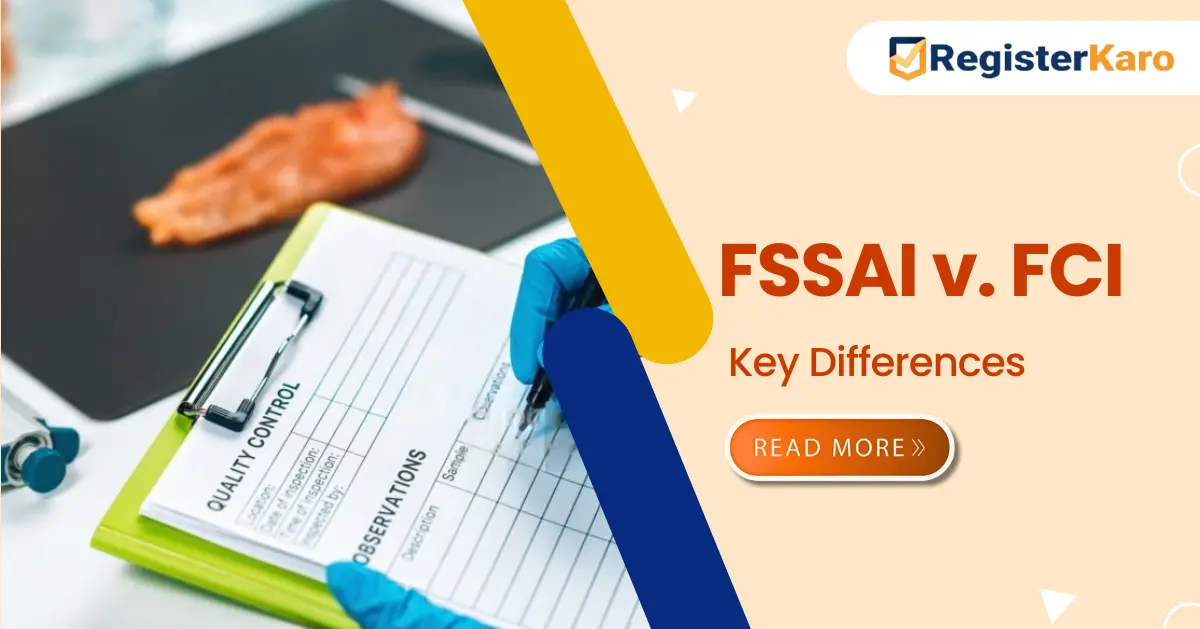The FSSAI License in Chennai is a mandatory legal certificate that authorizes any food business operator (FBO) to manufacture, store, distribute, or sell food products within the city and the state of Tamil Nadu. The Food Safety and Standards Authority of India (FSSAI), an autonomous statutory body established under the Ministry of Health & Family Welfare, issues this License. Its primary goal involves protecting public health by establishing and enforcing science-based standards for all food items.
In simple terms, obtaining an FSSAI license registration proves that your food business adheres to the comprehensive hygiene and safety standards mandated by the FSS Act, 2006. Every food business in Chennai, regardless of its size, from a local tea stall to a massive food manufacturing plant, must possess this license. It ensures traceability, enables regulatory oversight, and builds critical customer confidence in the quality of the food they consume.
The food industry in Chennai and across Tamil Nadu is flourishing, with its large-scale manufacturing units, rapidly expanding cloud kitchens, vibrant restaurant scene, packaged food startups, and growing community of home bakers. They must prioritize FSSAI compliance to ensure food safety, maintain consumer trust, and operate legally within the regulatory framework.
Why Do Food Businesses Need an FSSAI Number in Chennai?
Every food business operator (FBO) in Chennai must have an FSSAI number as required under the Food Safety and Standards Act, 2006. This number acts as a legal permit to operate and helps protect consumers from foodborne diseases, contamination, and fraudulent practices.
According to the FSS (Licensing and Registration) Regulations, 2011, the FSSAI number must be displayed clearly on food premises and product packaging. This display builds consumer trust and reflects the business’s compliance with national food safety norms.
Displaying the FSSAI logo and license number also signals that the business maintains high hygiene and quality standards. It strengthens brand credibility and assures customers that the food they consume meets official safety benchmarks.
Furthermore, possessing an FSSAI number is mandatory for food businesses partnering with online delivery platforms such as Swiggy and Zomato, making it essential for both traditional and digital food ventures in the city. Operating without a valid FSSAI License in Chennai is a punishable offense, attracting heavy fines or imprisonment.
The Role of the FSSAI in India’s Food Safety Ecosystem
The FSSAI plays a central regulatory role in India’s food safety ecosystem. Operating under the Food Safety and Standards Act, 2006, it sets uniform, science-based standards for food products. The authority monitors every stage of the food supply chain, from manufacturing and processing to storage, distribution, and retail.
It enforces strict compliance through inspections, issuing licenses, and imposing penalties for violations. The FSSAI also promotes consumer awareness about food hygiene, labeling norms, and nutrition transparency, encouraging food businesses to adopt a Food Safety Management System (FSMS). Together, these efforts help build a safe and responsible food environment across India, including in Chennai.











